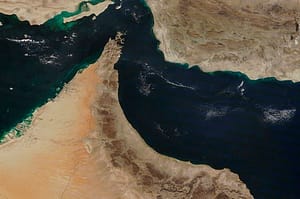Under the administration of Donald Trump, the United States government has announced the imposition of a 25% tariff on any country purchasing crude oil or gas from Venezuela starting April 2.
The decision is based on the alleged arrival of tens of thousands of Venezuelan migrants with violent backgrounds, which has been presented as a threat to U.S. national security.
The impact on the energy market was immediate. Following the announcement, crude oil prices experienced a significant increase.
WTI crude rose more than 1.40%, reaching around $69.30 per barrel, while Brent climbed more than 1.20%, reaching approximately $73.10 per barrel.
This market reaction reflects the uncertainty surrounding the future supply of Venezuelan crude and the potential retaliation from countries affected by the measure.
At the same time, Trump has decided to end the special license granted to Chevron since 2022 to operate in Venezuela.
The justification for this decision lies in the lack of progress in electoral reforms and the repatriation of Venezuelan migrants. Without this license, Chevron’s operations in South American countries will halt, reducing Venezuela’s ability to export crude oil.
China, Venezuela’s leading oil buyer, imported approximately 500,000 barrels daily in February 2025, accounting for around 50% of Venezuela’s total exports. Countries such as Spain, Italy, Cuba, and India have also maintained a steady flow of imports. With the new U.S. policy, these countries will face higher costs and may seek alternatives to bypass the tariffs imposed by Washington.
The measure has sparked reactions from the international community, with some governments expressing concern about the economic impact this could have on global oil trade. Geopolitical experts suggest that this decision could strengthen trade relations between Venezuela and powers such as China and Russia, which have already shown interest in increasing their influence in Latin America through strategic investments in the energy sector.
Meanwhile, Venezuela’s oil industry, already weakened by previous sanctions and declining production, faces another obstacle to its recovery. Without access to the U.S. market and under the threat of new tariffs on its buyers, state-owned PDVSA will need to find mechanisms to maintain its exports and avoid financial collapse.
In conclusion, the imposition of this tariff by the United States represents a new chapter in the tense relationship between Washington and Caracas. In addition to impacting Venezuela’s economy, the measure will have repercussions on the global crude oil market and could redefine trade alliances in the energy sector. The coming months will be crucial in assessing how key international players respond and whether Venezuela mitigated the effects of this new trade barrier.






Leave a Comment